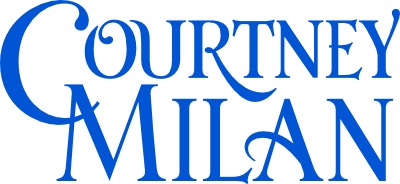Reminder: One more day to enter the Miranda Neville giveaway!
Apparently, there is a big kerfuffle originating from Author’s Guild about whether the Kindle 2.0’s “read aloud” feature is an infringement of an author’s right to dramatize a performance. A few days ago, Roy Blount, the president of Author’s Guild, even wrote an editorial in the New York Times bewailing the Kindle for precisely that reason.
I think Blount’s facts are right, but his conclusion is wrong. I agree with Blount that in a decade or two computer-generated voices will be pretty good. (I doubt they’ll ever be as good as a human-read voice, at least not in my lifetime–and the fact that IBM can generate a reasonable replica of a speaking voice today bothers me not at all. Yes, maybe–the applicability of IBM’s voice is perhaps to mimic a human reading a tech-support script, not to read with any sort of dramatic flair). I don’t doubt that computer-generated voices will improve substantially in the years to come.
But let’s suppose that everything Blount says is true: computer-generated voices will one day totally replace audio recordings. Okay, I’m thinking about that. And I think . . . well, that’s too bad. But I still don’t think that a computer reading aloud, to a private person, is any different than a computer showing words on a screen, or a person reading aloud in a private setting. It’s just a different kind of screen, or a different kind of reader.
More importantly, I think this is just one of the breaks of technology. Technology isn’t bad or good, but it does sometimes render revenue streams obsolete. Conversely, it sometimes creates markets that did not exist (or deletes competitive markets). A person with a Kindle 2.0 can have a file read aloud–something they wouldn’t be able to do with a regular book. But a person with a regular book has the right to resell their book to a third party, no matter what the original seller of the book may desire. And you can resell a book that you buy for your Kindle . . . oh wait. You can’t. You can’t even lend your to a friend. Score one for the mass-market paperback.
I don’t see Author’s Guild getting upset about the disappearance of the doctrine of first sale. I didn’t see them getting angry about eBook technology so restrictive that it did not allow people to even copy and paste minute sections, consistent with the terms of fair use. I don’t see them caring, not one bit, about the fact that the vast majority of eBook formats eradicate a user’s right to space- and sometimes even time-shift copyrighted works.
Now, it is not the Author’s Guild responsiblity to advocate for readers. But technology, including the Kindle, has taken rights away from the reader, and has put money in the pocket of the author by so doing. I don’t like to think that authors love technology everytime it takes something from readers that they already had, but hate it when it gives something to readers that they didn’t have.
Of all the things that worry me about the future of publishing, and about my future in publishing particularly–diminishing distribution for new and midlist authors; the possibility that an entire retail outlet could disappear by the time my debut novel hits shelves;Â a returns system that leaves royalties in a state of unsettlement for years; the capacity for widespread and unchecked copyright infringement through offshore servers–the fact that the Kindle now does what computers have been doing for over a decade is an item of nonexistent priority on my list of things to angst about.
